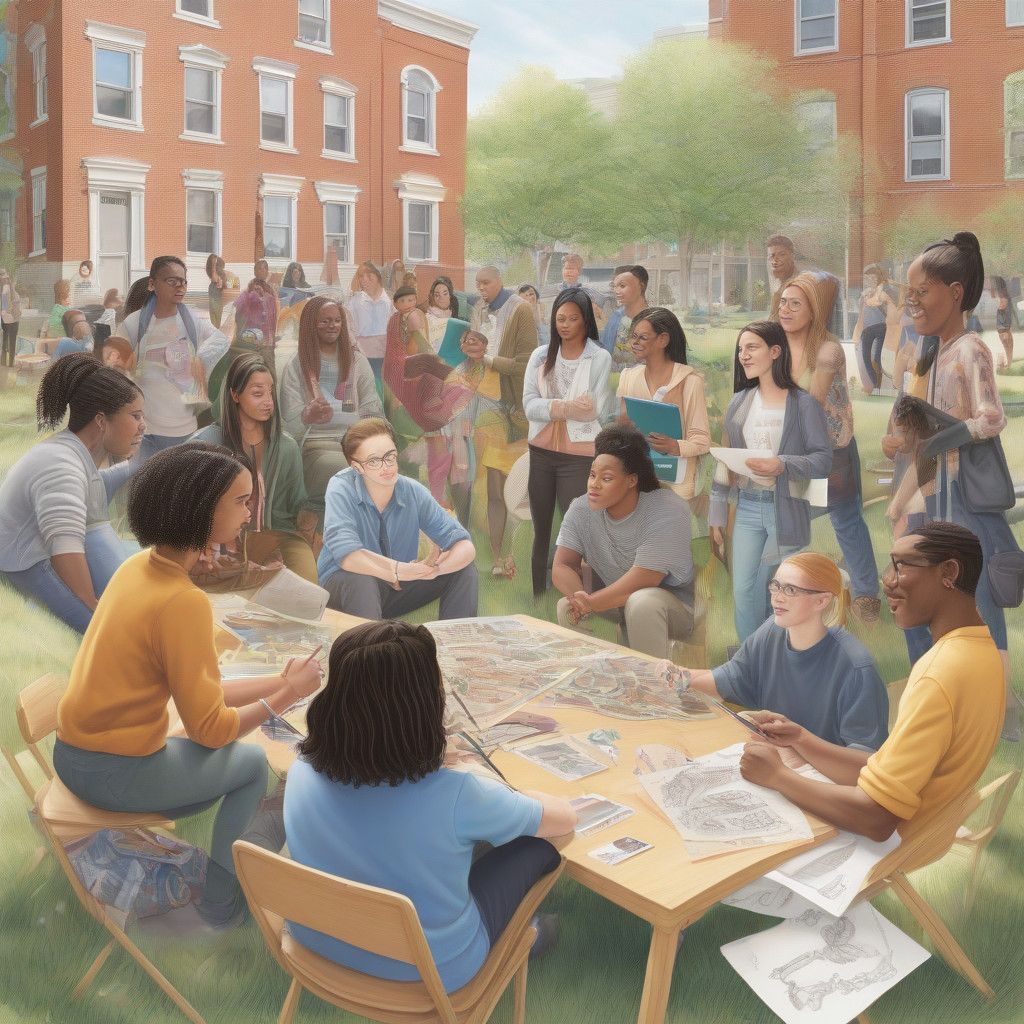NSCAD University, known for its commitment to arts and design education, thrives on its unique bond with the community it serves. This relationship goes beyond the conventional structures of higher education, placing a strong emphasis on collaborative initiatives that address societal challenges through research and artistic practice.
Community engagement is not just a side project but an integral part of how NSCAD conducts research. The institution recognizes that effective solutions to broader societal issues often stem from partnerships with local communities. By collaborating closely with various stakeholders, NSCAD has developed diverse, innovative research programs that cater to the specific needs of its neighborhoods.
Research at NSCAD manifests in various formats, ranging from scholarly work to creative endeavors, depending on the nature of the project and the individuals involved. One of the university’s core research frameworks, practice-led research, explores how artistic creation is intertwined with theory, aiming to produce both new knowledge and practical applications. This synergistic approach allows students and faculty alike to engage in meaningful exploration, ensuring their work remains relevant and impactful.
The projects initiated at NSCAD exemplify the institution’s vision of research that directly benefits the community. One notable example is the Flaxmobile project led by Professor Jennifer Green. This three-year initiative aims to rejuvenate the local textile industry by promoting the cultivation of flax as a sustainable alternative to synthetic fibers. The Flaxmobile serves as a mobile education and processing facility that connects farmers, craftspeople, and consumers across Mi’kma’ki, Nova Scotia.
By engaging directly with 15 farmers and 15 craftspeople, the project facilitates an exchange of knowledge and skills, enabling artisanal understanding of flax’s cultivation and processing. This hands-on approach not only enhances the livelihoods of local farmers but also fosters a sense of cultural heritage connected to textile production. As the project unfolds, it aims to address the systemic issues inherent in the global fast fashion industry, promoting sustainable practices through community involvement.
Another key initiative is the Community Mobile Media Lab (CMML), directed by Professor Solomon Nagler. This mobile media research lab supports underrepresented communities by providing them with access to industry-level media arts and film training. The CMML is a response to the significant barriers faced by local residents in Halifax and beyond. By bringing equipment and professional training directly to communities, the project empowers individuals to share their cultural narratives and participate in the filmmaking process.
The success of the CMML is highlighted by its rapid uptake of community interest and additional funding from industry leaders. The focus moving forward is to create certification programs specifically designed for underrepresented groups, making it easier for them to transition into the job market. By prioritizing culturally appropriate training, the initiative seeks to change the narrative around film education at NSCAD and beyond.
Another significant project is “Planting the Seeds of Hope across Turtle Island,” coordinated by Dr. Joshua Schwab-Cartas. This initiative bridges Mi’kmaq and Zapotec youth through workshops centered on storytelling and traditional food production. By restoring intergenerational relations between youth and Elders using participatory visual methods, the project fosters sustainable food practices while encouraging linguistic revitalization.
The research queries guiding this project emphasize experiential learning and community control over the process. By involving the very populations it serves, the research adheres to the First Nations Principles of OCAP—ownership, control, access, and possession—respecting Indigenous knowledge systems and fostering ethical research relationships.
Similarly, the “Storying Transnational Knowledge Project,” led by Dr. April Mandrona, underscores organizing storytelling platforms for newcomers. This initiative builds on previous successes in creating picture books with refugee children, delving into new mediums such as picture books, podcasts, and other creative expressions. The project spans locations in Canada and Australia, emphasizing the importance of collaborative storytelling in bridging cultural gaps and addressing the unique challenges faced by newcomers.
Ultimately, these projects illustrate how NSCAD’s research initiatives are vital in redefining the relationships between academia and the broader community. By actively involving community members in research creation, NSCAD not only addresses immediate needs but also fosters a spirit of mutual respect and collaboration. This approach ultimately benefits everyone involved, creating a cycle of knowledge and understanding that extends far beyond the walls of the university.
In summary, NSCAD University stands as a beacon of innovation in community-focused research. By nurturing collaborations, enhancing accessibility, and addressing urgent societal challenges through art and design, it effectively shapes a more inclusive future.












